Mass Effect Legendary Edition (PlayStation 4) Review
By Az Elias  28.06.2021
28.06.2021
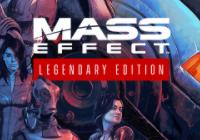
It is a little difficult to comprehend that the original Mass Effect is now fourteen years old. BioWare's epic sci-fi adventure defined a generation, with subsequent sequels leading to a trilogy that is beloved by many, even if the first game shows its age. With Mass Effect Legendary Edition, this long-awaited remastering of all three titles in the story arc of Commander Shepard, older fans can relive their fond memories, as new recruits also take the opportunity to dive into one of video games' most fascinating space operas.
When it comes to the original Mass Effect trilogy, it is without a doubt the first game in the series that was badly in need of a makeover. In that sense, it is only right that the bulk of this remastering project has seen the most care ploughed into that very title.
Common and expected improvements include better textures and lighting, enhanced geometry and environments, faster load times that even allow for the skipping of those infamous elevator sequences (although standing around to listen to the amusing squad conversations can override that desire to press ahead), as well as necessary gameplay features like being able to run when not in combat and massively superior Mako controls (Mass Effect's exploration vehicle).
Without directly comparing to the original version, it is difficult to genuinely appreciate the bump in quality and sheer number of enhancements applied in the Legendary Edition. However, it is clear that gameplay is noticeably smoother and more comfortable as a result. The multitude of little quality of life improvements mean going back to the game on PS3 or Xbox 360 would be very tough.
BioWare has even gone so far as to adjust certain rooms to make battles that take place in them much fairer, such as putting extra pieces of cover down. Better squadmate AI also goes in tandem so that they will go where you ask them to and not act like lemons mid-gunfight, and the improved aiming for Shepard makes combat overall a less frustrating experience.

Touching on the ability to customise your personal Commander Shepard at the very beginning of the adventure, a range of options have been added to the likes of skin tone, eye colour and hair styles, and this character will now import to subsequent games without being altered. In addition, the iconic default look for female Shepard (FemShep) that was standardised in Mass Effect 3 is now able to be chosen in Mass Effect 1 and 2.
Mass Effect Legendary Edition, when booted up, lets players begin any of the three games right away, with the normal options of creating a character or importing one from another Mass Effect entry. There was discussion many years back between developer and fans about what a potential remastering of the trilogy should entail, and whilst some suggested to merge the three games into one seamless experience, that hasn't come to fruition here - a decision for the best.
Each game is lengthy when actively completing all available side quests and appreciating the extent of the lore of the universe, but each stand on their own as individual games, with fans that naturally prefer one over another. To still provide that choice to play any game at will in the order one desires is important.
What was necessary was to include all previous download content in the package and to ensure they flow naturally into the plots themselves. Atlus and Shin Megami Tensei III be damned, this is an example of how not to slap the faces of your fans by not locking them out of DLC that should always be included in the remastering project years later.
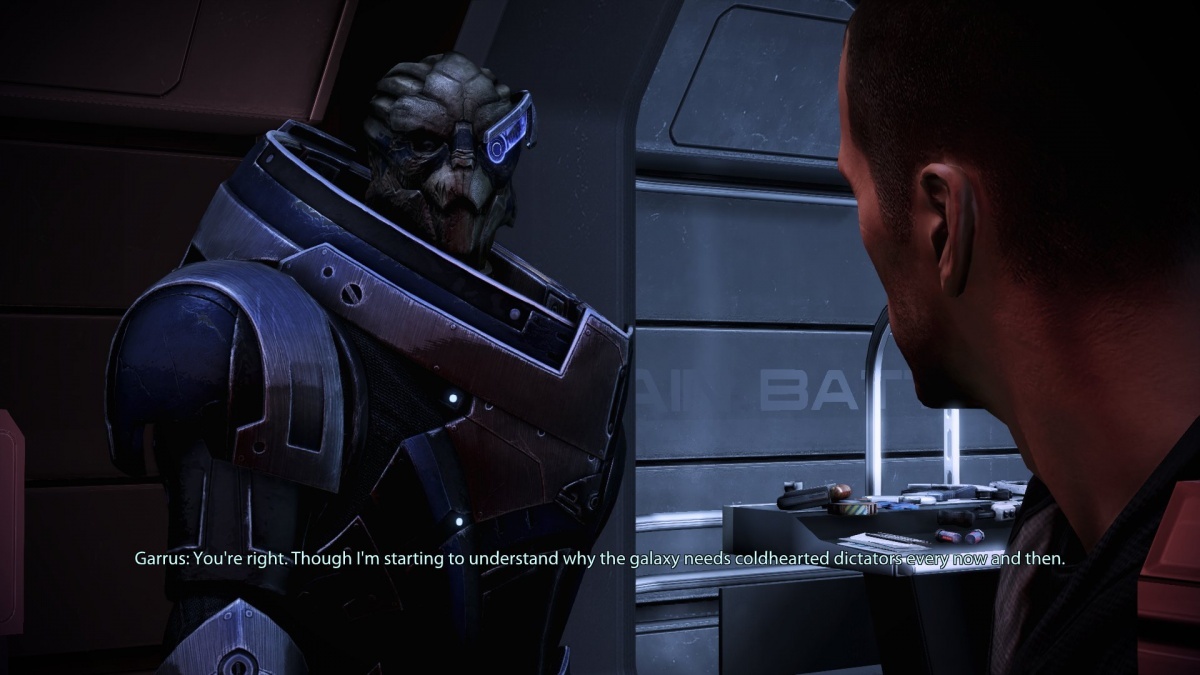
Although Mass Effect 1 didn't have a lot of DLC to speak of, and aside from one weak combat simulator that BioWare says the original files became corrupted and therefore does not appear in Legendary Edition, everything from missions to costumes and weapon packs is available here at no extra cost.
Rightly so, of course. It speaks to the sign of the times when you look at just how much DLC appeared in Mass Effect 2 and 3 compared to the first game, pinpointing where the industry took a turn for the worst - but that's capitalism for you. It is ME3 where the bulk of the DLC missions show up, integrated neatly now into standard missions that become available through natural progression of the story.
That includes the Citadel quest that acts as the perfect send-off for Shepard and the crew, featuring humour and call-backs to days gone by that players will find warming. To be honest, the series could have done with a bit more of this comedy and laidback factor to break up some of the serious content. Either way, this one is best saved for completing as close to the final mission in Mass Effect 3 as possible, to fully appreciate all it has to offer.
Revisiting each game today, very few titles offer the level of fascinating lore that Mass Effect still does. It wouldn't be fair to talk about the many threads that make the universe what it is, as new players should go in as fresh as possible so as to enjoy each discovery as it comes, but humans being the newbies in the wider galactic community makes for already interesting storytelling. Given that there are plenty of other intelligent lifeforms that have been warring, peace-making, establishing governments, terraforming, and even cross-species breeding with one another for over a couple of millennia before humanity shows up on the scene, this is a galaxy rich in history and intriguing characters.

This is where the entire Mass Effect trilogy shines its brightest. The interactions with the diverse cast of characters, both crewmates and NPCs alike, develop the local and wider lore at large, culminating in players having to make key decisions by the time of the final game.
Decision making is a massively important part of the series, where Shepard generally has to make good or… less good choices throughout each game. Although not everything really produces the sort of results expected after choosing certain options during moments that are supposed to have huge repercussions further down the line, there is a certain nervousness that comes with deciding on the fate of people's lives or how to handle situations that can possibly make life easier for you either in the moment or in another game entirely.
Rewarding and impacting junctures occur mainly in Mass Effect 3, where almost three games' worth of plotlines come down to Shepard having to make difficult calls, determining what happens to entire species and fond characters. Paths taken in past games influence what happens here, and it is times like these where the trilogy earns its replay value, so players can try again to see what other outcomes they can produce.
Sadly, there are one too many seemingly tough decisions that result in almost the same thing happening anyway, or just nothing at all. Whatever the reasons for this in development, the final products come off negatively when one of the series' biggest draws is the decisions made by its players. An array of options can be taken and mean most players will have different stories to tell, but most of the key moments usually culminate in the fates of squadmates and which slightly different ending is achieved in Mass Effect 3.
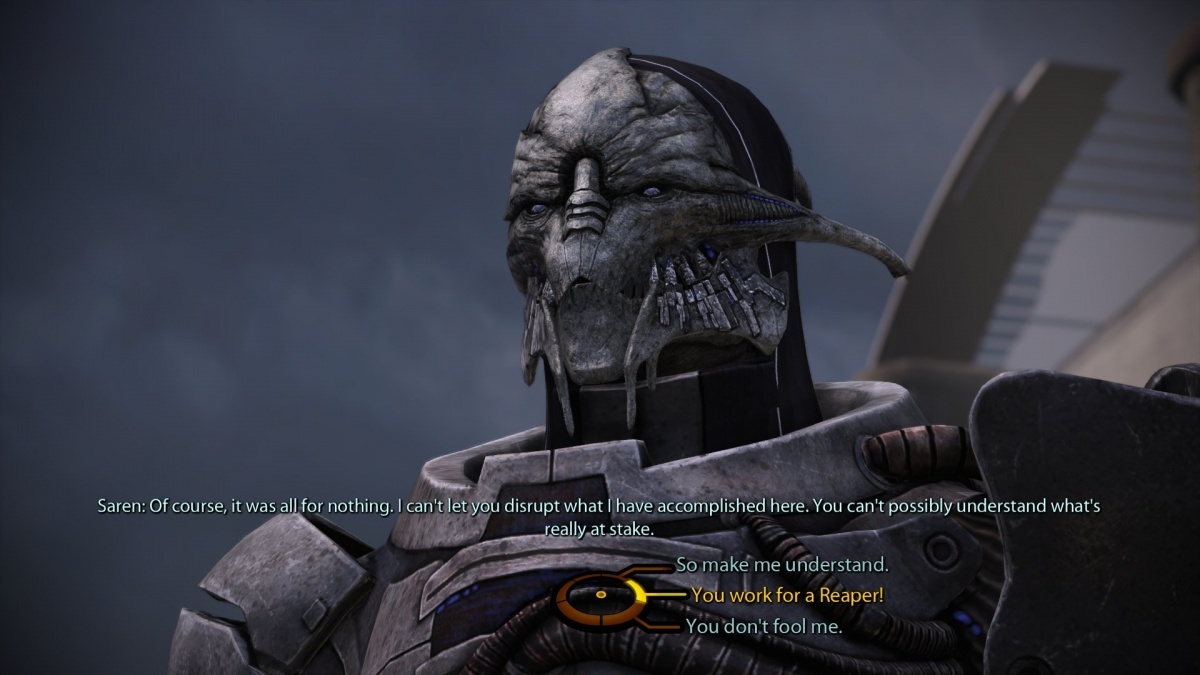
Mass Effect as a three-game whole means it was always going to be a grand undertaking to be able to allow the player to make a broad range of decisions and see such varying results by the time of the final game. Time restraints placed on the team and cut content can be telling, and no doubt things could be different if the franchise was created today, but what branching paths are here is still enough to ensure most individuals' quests will be unique to them.
Mass Effect 1, despite its dated gameplay (even with the remaster updates), arguably remains the pinnacle of the series. Chasing down a rogue space agent linked to a galaxy-wide threat, Commander Shepard experiences their freest and most nonlinear quest of the trilogy here. From a human colony whose citizens are acting incredibly strange to a locked down research station where soldiers are keeping hostile aliens at bay, players can tackle these missions in more than one way. The suspicious humans can be saved or killed, whilst entering the quarantine zones in the research station results in the guards turning on you if you return, forcing you to take them out, too.
There is much more to even these examples than described, with Shepard taking a more hands-on and forceful approach if necessary, showing little respect for others - or they can spend that extra time conversing, gathering information and doing a bit more detective work, in the hope of saving people and keeping damage to a minimum.
The role-playing elements relax by the time Mass Effect 2 and certainly Mass Effect 3 come along, where the adventures become progressively more linear. It makes sense with the final act, where the galactic threat means it would be at odds to be spending a lot of time dilly-dallying and contemplating. That freedom to take different approaches is lost, though, meaning the idea of role-playing and doing things your way is resigned predominantly to conversation wheels.
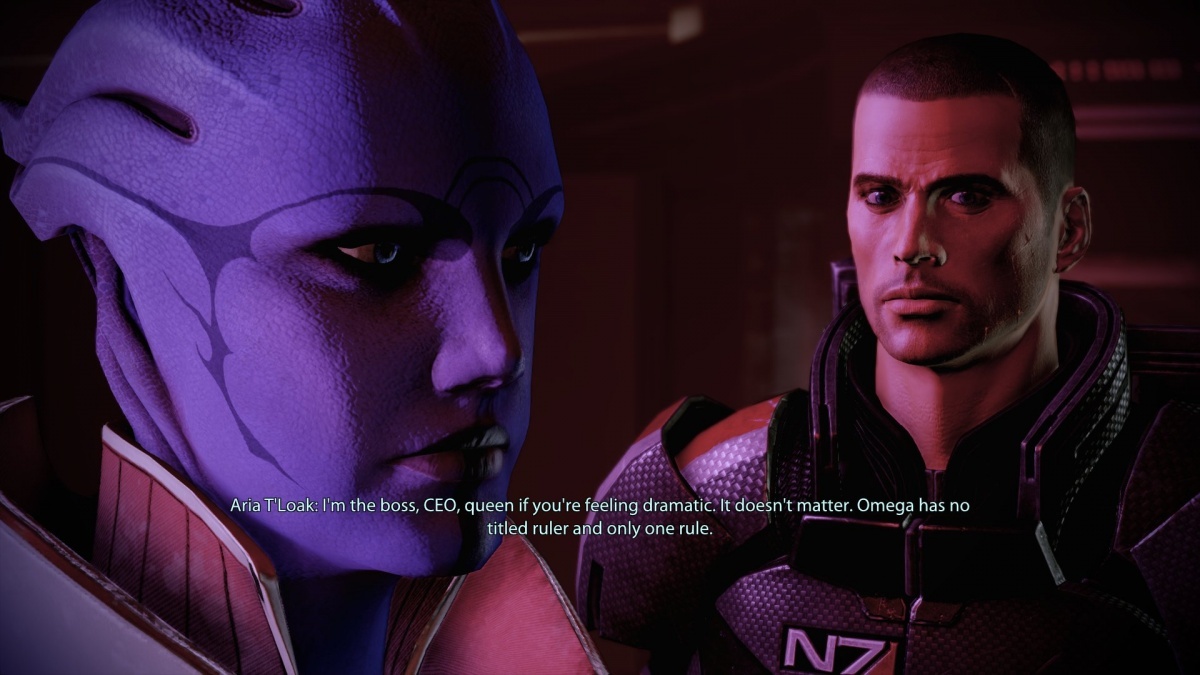
Part of what also elevates Mass Effect 1, which also goes together with the freedom aspect, is the ability to explore different planets by way of the Mako. This infamous six-wheeled tank-like vehicle allows traversal over any terrain…albeit with some extremely dodgy controls. However, Legendary Edition tightens up the Mako massively and it is now much easier to handle, coming with a booster that helps getting up ridiculous inclines with less trouble.
It still isn't perfect, but in the Mako's defence, BioWare seemingly hasn't adjusted any of the planets with the most absurd terrain ever seen. Some planets feature the flattest of expanses, and suddenly you are forced to climb up and down, and up and down spiky mountaintops that are extremely difficult to get out of, even with the updated control scheme. Falling, toppling over, and getting annoyed are things to get used to, just so you can reach some equally preposterously placed outpost or station built in the middle of the mountains.
Thankfully, many of the Mako missions are side quests that don't have to be tackled - although do go some way to injecting that extra bit of lore that really develops Mass Effect's universe. Too many reused assets and corridors in these optional regions can break the immersion a little, which impact negatively on the combat, too, since all that changes are some placements of crates and such for cover.
Mass Effect 2 kicks off with a bang, and it is a compelling storyline that diverts from Mass Effect 1 in several ways, yet still retains a strong link to the previous title. This game stands on its own well, though, and everything from combat to graphics is heavily improved. Its central theme is that of a suicide mission, where Shepard spends most of the adventure completing quests to recruit characters that will accompany them to an unexplored part of space that no one has ever returned from.
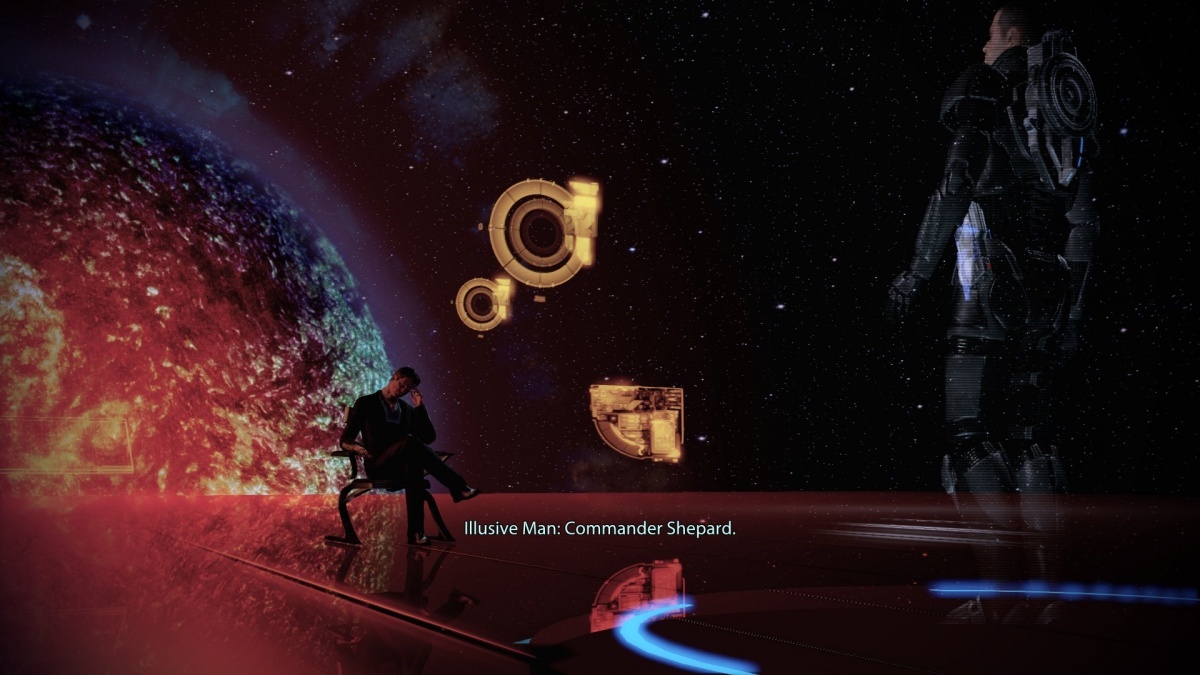
The role-playing elements are streamlined in the sense that choosing and upgrading combat gear is essentially gone, and the sense of exploration isn't as existent thanks to the removal of the Mako. Missions take on a more linear approach, too, save for a handful here and there that incorporate dialogue and some wandering around to break up the gunfights. It's not necessarily a bad thing when you consider that battles can be fun and aren't too difficult (better players may want to knock things up to hard mode or above), but this is a far cry from the more interesting RPG-like missions of the previous game.
It seems BioWare couldn't help themselves from unnecessarily slowing the gameplay with mundane minigames, though, oddly doubling down on the timed command prompts in the first game when examining or opening objects of interest. From matching symbols when hacking wall terminals to monotonously scanning planets in the map and firing probes to accrue resources that are used for ship and weapon upgrades, one too many times are players pulled out of the action and made to take part in these repetitive sequences.
Like Mass Effect 1, though, it is the lore and characters that massively elevate Mass Effect 2 above and beyond other video games. It is easy to fall in love with the fast-talking salarian scientist Mordin, the mobile robotic geth unit Legion, or the deadly yet spiritual drell assassin Thane. Likeable returnees such as Tali and Garrus develop their characters further, too, with the turian becoming even more of a badass here.
The squad is much larger than in Mass Effect 1, as well, with additional alien races to recruit, bringing more of an intergalactic feel to the team Shepard cobbles together. By pursuing what are known as loyalty missions for each character, players not only gain a deeper understanding of the squadmate, but their effectiveness and trustworthiness comes into play later in the culminating suicide mission, as well as in the following game. There is no question that Mass Effect 2's final arc is the highlight that brings everything together, despite some questionable design choices when it comes to the actual decision-making process that defines it, which can lead to more than a few character deaths if not careful.
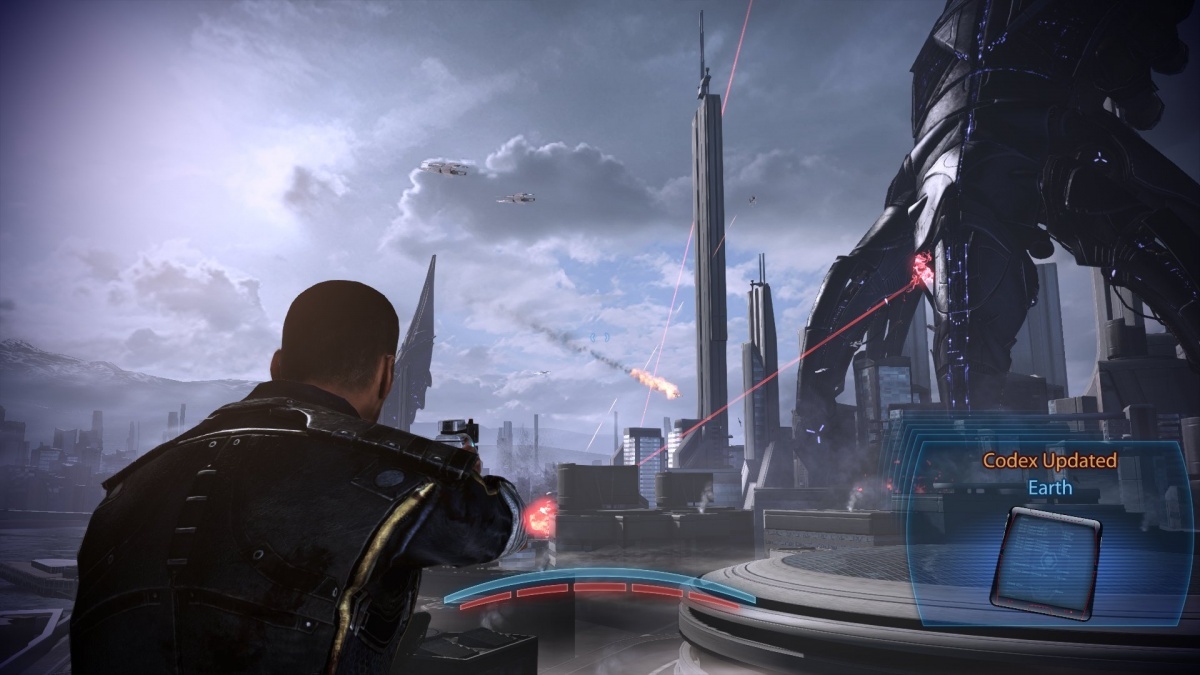
As expected, Mass Effect 3's structure is even more linear than the past two games, with a galaxy-wide war in full effect. Even though this is the case, there is still a sense of relative calm, and Shepard can travel to various planets that have not yet been impacted, on top of those that are feeling the brunt of it.
Where the war is heavy, though, Mass Effect 3 presents its themes and atmosphere incredibly well. Of note is an early mission on the moon of the turian homeworld, which is being pummelled by invading forces in the backdrop of space, the planet burning in destruction. With your squad assigned to help this race secure strongholds, there is a desperate feeling of urgency, despite the odds of survival looking incredibly slim.
This is the tone for the majority of the game, as Commander Shepard seeks to unite the galaxy's races in the hopes of pulling together to defeat the menace wreaking havoc. This means tying up loose ends and key plotlines that have been prominent throughout the trilogy, such as the conflict between the geth AIs and the quarians that created them, and whether to go about curing the infected krogan's birth defects at the risk of losing the support of the salarians that crafted the disease.
Many choices made since Mass Effect 1 come into play here, and while not everything really comes together in the way many would like or expect, including in the controversial ending, the paths and missions through each key plot thread are often exciting and accompanied by tough decisions that generally lead to an array of outcomes, of which many certainly demand multiple replays of the trilogy at large to see what else is possible.
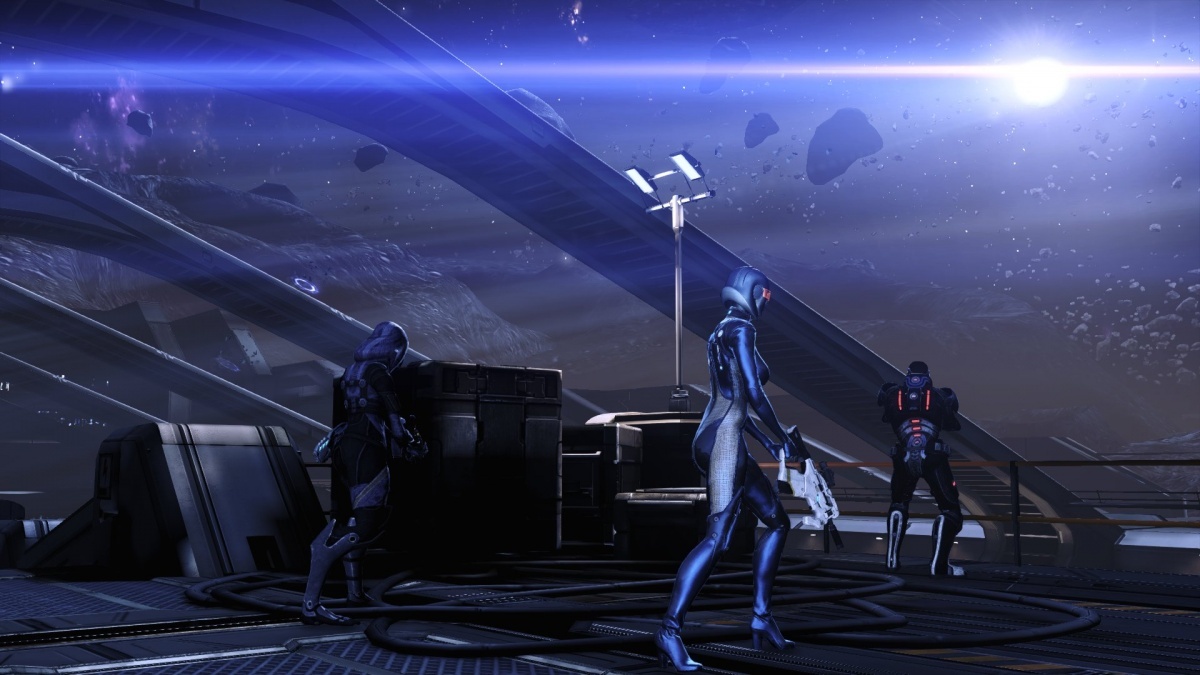
BioWare lets itself down in a few areas, though, come Mass Effect 3. From turning the Normandy ship's AI into a sex doll squadmate with heels and glamming up Ashley, it is clear where some of the developer's priorities lay. A reduced crew that doesn't even have a krogan, an awful new villain in the form of Kai Leng that pops up randomly, and missable missions that carry no warning once advancing the plot too far are a couple of other dampeners.
On the whole, the three games combine to craft an epic space saga that should be checked out by almost anybody with an interest in sci-fi, and a new photo mode does wonders for capturing fantastic moments that fans will get a huge kick out of.
It is worth highlighting a few further frustrations before closing, however. Why there is a permanent vignette in Mass Effect 3 that can be turned off in photo mode yet not in-game is baffling. The skip dialogue button also acts as another means to selecting conversation choices, so accidentally picking something you didn't mean to is a common occurrence. Accessibility options seem extremely limited, and the text size for computer screens in Mass Effect 2, in particular, is incredibly small.
Speech can sometimes end abruptly before the end of a sentence and some lines aren't even spoken at all when they should be. There are clear audio mixing issues mainly in Mass Effect 1, with gun sound effects being incredibly loud, and music tracks have an ugly tendency to just end before starting back up again. Many glitches carry over into Legendary Edition, basically, which goes to show this trilogy still required far more reworking than was given.
The screen tearing in framerate mode when played on a standard PlayStation 4 is atrocious and can detract from the experience. Perhaps not enough to resort to the 30fps graphics mode, but surely a PS4 should be able to handle this game in 60fps.

Cubed3 Rating
Very Good - Bronze Award

The Mass Effect trilogy is a personal all-time favourite of this here reviewer, and Legendary Edition comes highly recommended to anyone that enjoys sci-fi narratives, regardless of preferred genres or experience. As games, each has its faults and glitches that can't be glossed over today, but this package as a whole is a gripping adventure that takes players all over the Milky Way galaxy, meeting fascinating characters and alien races, of whom many will stick long in the memory. The lore will always be the absolute reason for anyone to give this a try, and it's highly likely that no matter the issues, the story and crew will be more than enough to keep you going to see this grand adventure right to the end. Unfortunately, one too many complaints are difficult to ignore and hold it back from being the remaster this deserved to be.

![]() 7/10
7/10
![]() 0
(0 Votes)
0
(0 Votes)
 Out now
Out now  Out now
Out now  Out now
Out now  Out now
Out now Comments
Comments are currently disabled

 Sign In
Sign In Game Details
Game Details Subscribe to this topic
Subscribe to this topic Features
Features





 Top
Top

